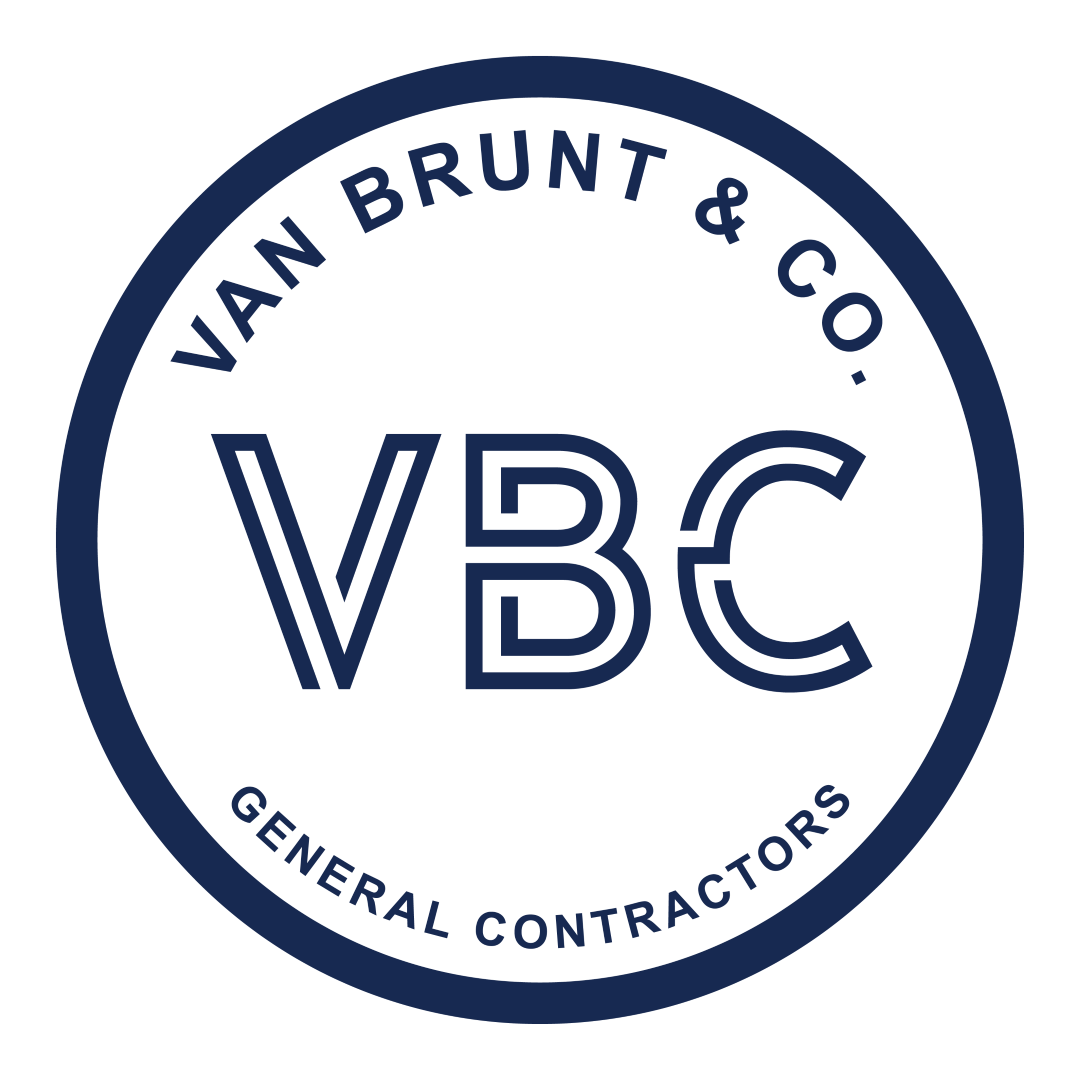Design-build contractors streamline projects by managing both design and construction, reducing timelines and often lowering costs through an integrated approach.
Choosing the right contractor for your commercial building construction project is one of the most crucial steps in bringing your vision to life. Unlike residential construction, commercial projects often involve a higher level of complexity, more stringent regulations, and a need for specific expertise. Whether you’re building an office space, retail location, or a large-scale industrial facility, the contractor you select will directly impact the quality, timeline, and overall success of your project.
A skilled and reliable contractor brings more than just construction experience; they offer guidance in design, navigate permits, coordinate teams, and manage unforeseen challenges to keep the project on track. In this guide, we’ll walk you through essential steps to help you choose a contractor who aligns with your goals, budget, and quality standards, ensuring a smooth, efficient, and successful construction journey.

Understanding the Role of a Commercial Contractor
When you’re in the market for a commercial contractor, the first step is understanding what they actually do. It might sound straightforward, but knowing their specific responsibilities, especially in commercial building construction, can help you choose the right one for your project. A commercial contractor is essentially a general contractor with a focus on commercial building construction projects. Unlike residential contractors, who work on homes, commercial contractors take on projects like building and renovating schools, office spaces, restaurants, retail stores, and other similar structures. Their expertise in commercial building construction ensures they are equipped to handle the unique requirements of these spaces, from regulatory compliance to specialized design needs.
A commercial contractor manages various phases of the construction process based on the project’s requirements, including:
- designing the project
- handling permits
- sourcing and purchasing supplies
- ensuring compliance with building codes
- adhering to zoning regulations
With their expertise, commercial contractors are key players in ensuring that large-scale projects are completed on time and meet all legal standards.
Do You Need a Commercial Contractor for Your Project?
For most commercial construction projects, the answer is often a straightforward “yes,” depending on the complexity of the work. Legally, many construction projects—whether commercial or residential—require a contractor who holds the proper licensing, obtained through proven expertise and skills. While a contractor’s role might not always include design or supply management, they play a crucial role in securing necessary permits before construction begins and obtaining a certificate of occupancy upon project completion, which is essential for opening a business.
This is one of the key reasons why having a general building contractor is invaluable. Handling permits, ensuring regulatory compliance, and navigating construction codes can be overwhelming for business owners, especially those unfamiliar with the building process. Contractors streamline these tasks, managing and guiding the project from start to finish to provide peace of mind and ensure that the work is done safely, efficiently, and according to legal standards.
Ultimately, a commercial contractor allows business owners to focus their time on managing operations, hiring staff, or developing marketing strategies for their new or expanded space, rather than juggling the complexities of construction.

Different Types of Commercial Building Construction Contractors
In commercial construction, various contractors contribute unique skills and services to bring complex projects to life. The main types of commercial contractors include:
General Contractors
General contractors oversee the full scope of a commercial construction or remodeling project from start to finish. As project managers, they hire and coordinate subcontractors, supervise on-site construction, manage project schedules, and ensure adherence to local building codes and regulations. General contractors are typically responsible for large projects, such as new commercial buildings, significant renovations, or extensive remodeling work. Their focus is on comprehensive project management, ensuring that everything aligns with the approved plans, budget, and timeline.
Specialty Contractors
Specialty contractors, also known as trade contractors, concentrate on specific areas of construction, such as electrical work, plumbing, HVAC, concrete, or roofing. Their specialized expertise ensures the technical elements of a commercial project are completed accurately and safely. Examples of specialty contractors include electricians, plumbers, masons, landscapers, carpenters, and drywall installers. Specialty contractors are essential for handling precise tasks that require specific skills and certifications, contributing directly to the project’s structural and functional integrity.
Design-Build Contractors
Design-build contractors streamline the construction process by integrating both design and construction services into a single, cohesive package. By managing the entire project directly, design-build firms eliminate the need for separate designers and contractors, often resulting in faster project completion and cost savings. These contractors handle all phases of the project under one contract, offering a single point of contact and reducing the risks associated with divided responsibilities. This approach is especially valuable for projects requiring a quick turnaround and close coordination between design and construction teams.
Each type of commercial contractor offers distinct advantages, contributing to the success of commercial construction projects. Business owners can optimize project outcomes by selecting the right contractor type to match the unique demands of their project.

Key Qualities to Look for When Hiring a Commercial Contractor
Once you’ve determined that a commercial contractor is essential for your project, whether it’s new construction or renovations, the next step is finding the right one to bring your vision to life. Whether you’re considering a large firm or an individual contractor, knowing what to look for can make all the difference in the success of your project.
Here are a few critical factors to keep in mind:
Identify Your Project’s Unique Requirements
Define Project Scope: Begin by outlining your project’s exact scope, covering aspects like its size, complexity, and any unique specifications it might have.
Seek Specialized Expertise: Choose contractors with proven experience in your type of project to guarantee quality workmanship and streamlined execution.
Ensuring your contractor aligns with these needs will help set a solid foundation for project success.
Evaluate Contractor Qualifications
- Look for contractors with relevant experience in similar projects. Verify licensing and insurance to ensure they meet legal requirements and provide liability protection.
- Review their expertise, especially if your project involves specialized trades like electrical work or HVAC systems.
Experience and Expertise
Seek out a contractor with a strong track record in projects similar to yours. Specialized experience helps ensure they’re prepared to manage any unique challenges your project may have.
Licensing and Insurance
Always verify that the contractor has the required licenses and insurance for commercial work in your area. This not only ensures compliance with local laws but also protects your project from liability.
References and Reviews
Check for references or client testimonials. A reputable contractor will have a list of satisfied clients and a portfolio of completed projects, giving you insight into their quality of work and reliability.
Detailed Contractor Bid
A well-structured, itemized bidding document is essential. The bidding details should break down costs for each stage of the project, including labor, materials, permits, and other fees. This approach not only helps you understand where your money is going but also allows for easier comparisons if you’re considering multiple contractors. Be wary of vague or overly generalized bids, as they can often lead to unexpected costs later.
Taking the time to evaluate potential contractors based on these factors will help you find a partner who can deliver high-quality work on time and within budget, setting your project up for success.
Clear Communication
Transparent, consistent communication is crucial for a successful project. Choose a contractor who is responsive and willing to provide updates at every stage of construction.
Project Management Skills
Look for a contractor with solid organizational skills and a clear plan for managing timelines, budgets, and subcontractors. Good project management can prevent delays and keep costs aligned with your expectations.
Make Your Final Decision
- Evaluate the contractors based on alignment with your goals, the quality of work, and overall value rather than just cost.
- Once you’ve reviewed all aspects, choose a contractor who best fits your project requirements and can execute it to your standards.

Additional Considerations for Commercial Building Construction
Selecting the right general contractor is crucial for the success of any commercial building construction project. A skilled contractor brings the experience, resources, and knowledge needed to manage complex projects and coordinate a team of specialized subcontractors. For large-scale commercial construction, this often includes professionals such as masons, electricians, plumbers, and roofers, all with expertise in their respective trades. Many contractors turn to reputable industry sources to identify qualified subcontractors who have the essential training and experience required for commercial projects. This approach ensures that every aspect of the construction process meets the highest standards, allowing for a seamless project from start to finish.
Maximize Project Success by Hiring a Local General Contractor
When planning a commercial project, consider the advantages of keeping it local by hiring a nearby general contractor. A contractor with proven experience in your region brings invaluable insights, understanding your market’s unique needs and challenges. Their local expertise means they likely have a network of reliable subcontractors, keeping your project on schedule and within budget. Working with a contractor who knows the local landscape not only fosters smoother collaboration but also brings you the confidence that your project is in capable hands.
Prioritize Quality Over Cost in Commercial Construction Projects
Sticking to a budget is essential, but letting cost alone drive your contractor choice may cause setbacks and extra expenses. Avoid choosing the lowest bid just to save money—it could result in delays, poor workmanship, and unexpected costs that quickly add up. Construction is a significant investment, and cutting corners here can compromise the long-term success of your project. Focus on finding a contractor who offers the best value, ensuring quality work and reliable service for your investment. Prioritizing quality now will pay off in lasting results.
It’s Your Commercial Building Construction Project—Don’t Hesitate to Ask Questions!
When selecting a general contractor for your commercial building, make sure to ask about their licensing, insurance, and safety record. These questions aren’t just for formality—they reveal a lot about the contractor’s professionalism and reliability. A reputable contractor will confidently discuss their credentials, assuring you of their experience and commitment to quality. A reputable contractor will confidently discuss their credentials, assuring you of their experience and commitment to quality. Remember, Choose a trustworthy contractor who stands by their qualifications—don’t hesitate to ask about key details for success.
Conclusion
Choosing the right commercial building construction contractor is a key step to ensure your project, as well as your investments, are protected and completed efficiently, on time, and within budget. By understanding general, specialty, and design-build contractors and assessing their qualifications and communication, you set your project up for success. Remember, a skilled contractor does more than build; they navigate complexities, streamline operations, and manage risks, allowing you to focus on your business goals. Carefully evaluate contractors to find a partner who shares your vision and can deliver quality results.
FAQs
What is the difference between a general contractor and a specialty contractor?
A general contractor oversees the entire project, managing subcontractors and ensuring the project runs smoothly. Specialty contractors, like electricians or plumbers, focus on specific areas within the project.
How do I know if a contractor is licensed and insured?
You can verify licensing and insurance directly with the contractor or check with your local licensing authority to ensure compliance.
Why is hiring a local contractor beneficial?
Local contractors are familiar with regional building codes and have established networks with local subcontractors. This can help keep the project on schedule and within budget.
What are the benefits of choosing a design-build contractor?
Design-build contractors streamline projects by managing both design and construction, reducing timelines and often lowering costs through an integrated approach.
What should I look for in a contractor’s bid?
Look for a detailed, itemized bid that breaks down labor, materials, permits, and fees for transparency and easy comparison.

